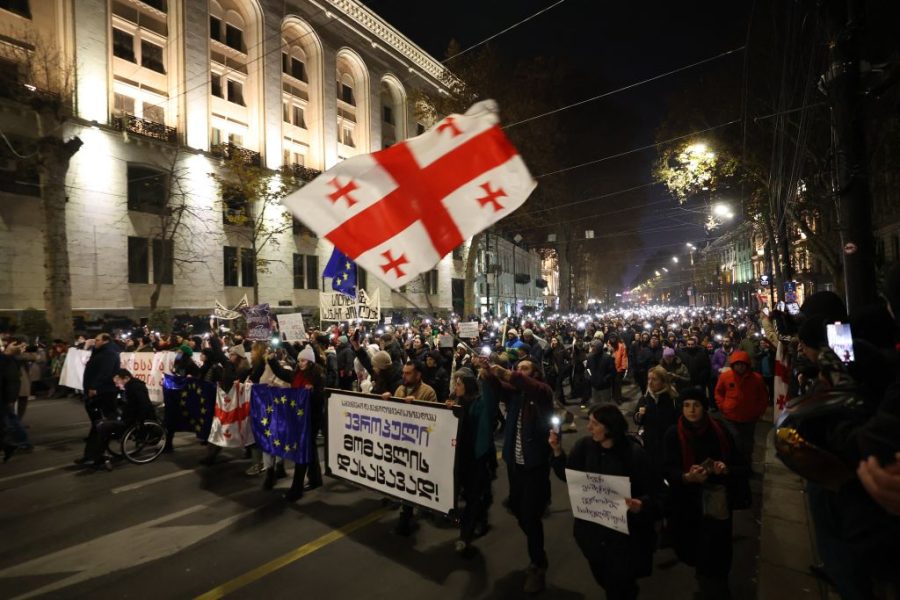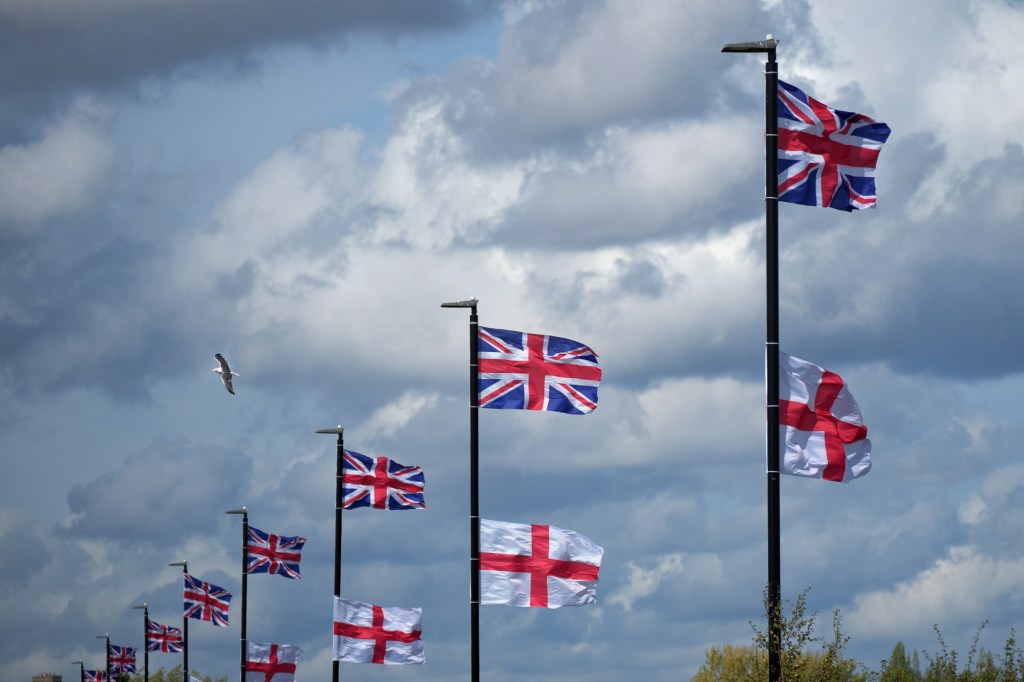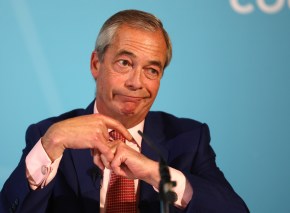On 4 October, voters in Georgia will be called to the polls to vote in the country’s municipal elections and choose a new cohort of local councillors and city mayors. How many citizens will actually turn out, though, remains to be seen: for many, after a steady erosion of democratic freedoms in Georgia, this vote carries little meaning.
Georgia’s elections in October last year cemented the dominance of the populist Georgian Dream party in parliament, but the vote’s outcome remains contested by the opposition. Tuesday marked the 300th consecutive day that citizens from across the country have gathered in major cities – every evening in Tbilisi, for example – demanding the annulment of the election results and the holding of a new vote. In this context, the current parliament, along with Georgia’s new president, Mikheil Kavelashvili – elected by MPs in December last year – is not recognised as legitimate by the public.
How many Georgians will still dare to defy a regime tightening its grip on the country?
The resulting crisis reflects Georgia’s gradual and continuous democratic backsliding. Since 2022, this erosion has gone hand in hand with a visible rapprochement with Moscow, discreetly orchestrated by Georgian Dream’s founder, Bidzina Ivanishvili, an oligarch who made his fortune in Russia. Warnings from international NGOs and Western partners have multiplied to no avail: on the contrary, the Georgian government suspended its EU accession process in late November last year. The decision ignited public anger in a society where about 80 per cent of citizens support membership of the bloc. Despite sanctions from Brussels and Washington, the authorities remain unmoved by outside pressure.
Under these conditions, the main opposition parties – including the United National Movement (UNM), founded by former president Mikheil Saakashvili – have announced they will not field candidates in next week’s election. Together with former president Salome Zourabichvili, they are calling for a boycott of the poll – and it seems highly likely their call will be widely heeded.
Nothing in the government’s stance suggests that the upcoming vote will offer the necessary safeguards against the widespread fraud documented in previous elections. In fact, all signs point to the opposite. Prime Minister Irakli Kobakhidze long resisted allowing observers from the independent Organisation for Security and Cooperation in Europe into the country before finally relenting on 6 September – far too late for the organisation to deploy a mission. Even Georgia’s own independent observer groups, such as ‘Observers’ and the International Society for Fair Elections and Democracy, both highly active during last year’s parliamentary elections, have chosen to join the boycott.
This marks a break with Georgia’s strong tradition of election monitoring. Citizens will instead have to make do with a handful of token international missions – around ten in all – including the National Electoral Board of Ethiopia and the Central Commission for Elections and Referendums of Kyrgyzstan, bodies whose presence can only be described as cosmetic.
Meanwhile, the government exploits judicial and law enforcement resources to exert increased pressure on political parties. Over the past six months, ten leaders – especially from the UNM and the four parties of the liberal Coalition for Change – have been prosecuted and jailed on administrative or criminal charges. Others have chosen exile, such as Giorgi Gakharia, a former prime minister and Georgian Dream defector once seen as a contender for Tbilisi mayor, who has taken refuge in Germany and denies all charges against him. Two leaders from the Lelo party have been granted presidential pardons, and their group insists on participating in the vote against all odds.
Such decisions fuel suspicions amongst the public and deepen rifts within the opposition. According to Tako, an NGO worker from Akhaltsikhe, ‘Lelo and Gakharia’s party, For Georgia, should abstain from participating so as not to confer legitimacy on the Georgian Dream.’ Flora Pachulia, a 34 year-old jurist from Kutaissi, will also join the boycott, though she is not convinced:
Since political parties are weak both at the central and especially at the local level, I believed that participation in the elections could have been a way to strengthen the protest spirit locally.
Tbilisi and a few other large cities, such as Batumi and Kutaisi, are the only constituencies where a real electoral contest might have taken place. Elsewhere, Georgian Dream dominates local politics, already controlling 63 of the country’s 64 sakrebulo (district councils). The challenges that plagued last year’s parliamentary elections are even more acute in the municipal race: opposition parties remain divided, have failed to unite behind joint candidates, and lack strong local networks. This leaves the field wide open for the authorities to intimidate dissenters, misuse state resources during the campaign, and employ the full range of ‘electoral technologies’ – the euphemism used for vote-rigging methods.
As in neighbouring authoritarian regimes such as Turkey and Russia, Georgian Dream’s popularity will be measured less by results than by voter turnout. The real stakes of these elections therefore lie outside the polls.
In Tbilisi, the centre of daily protest has shifted from the parliament to the campaign headquarters of incumbent mayor Kakha Kaladze, a former footballer turned leading figure in Georgian Dream. But the real showdown is expected on 4 October, when a massive rally is planned in the capital, drawing people from across the regions. Tako says she will be there with her friends from Akhaltsikhe. Calls to join the protest are multiplying, relayed by opposition parties, civic groups, and activists alike.
Yet even here, the opposition is fragmented: some leaders are calling for the government’s overthrow or even a revolution, while others are cautiously limiting their demands to new parliamentary elections and the release of political prisoners. As throughout the past year, protest mobilisation is increasingly taking place outside traditional party structures, organised instead by professional groups (civil servants, students, doctors) and segments of civil society.
So far, this wave of dissent – even at its peak in November last year – has failed to shake the authorities. The arrests of leading political figures hint at some nervousness, but the regime’s repressive arsenal has since grown considerably stronger. Heavy prison sentences handed down to activists and journalists, widely denounced by human rights groups, have dampened protesters’ resolve. For those undeterred, the threat of violence – whether at the hands of police or titushki (government-backed thugs) – remains all too real.
More than a simple ballot, 4 October will serve as an acid test: how many Georgians will still dare to defy a regime tightening its grip on the country? During the Rose Revolution in 2003, no less than 30,000 stormed the parliament – but only when the military joined them did President Eduard Shevardnadze agree to step down and negotiate a democratic transition. Without similar support from the security forces, government insiders, or other power brokers, it is hard to see how next Saturday’s protest will change much at all.







Comments